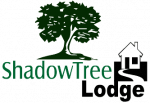Nutrition Services
What Level of Care Do You Need?
Discover the level of care you or your family member requires.
Nutrition for the Elderly: A Guide to Healthy Aging
As we age, our nutritional needs evolve, making it crucial to focus on nutrition for elderly individuals. Proper nutrition plays a vital role in maintaining health, preventing chronic diseases, and enhancing the quality of life for seniors. This comprehensive guide explores the importance of nutrition in the elderly, the essential nutrients they require, and strategies to improve their dietary habits.
Understanding the Importance of Nutrition in the Elderly
The importance of nutrition in elderly populations cannot be overstated. As people age, they experience physiological changes affecting appetite, digestion, and nutrient absorption. Factors such as decreased taste and smell, dental issues, and side effects from medication can lead to reduced food intake and nutrient deficiencies. Ensuring a balanced diet helps maintain muscle mass, bone health, and cognitive function, reducing the risk of chronic diseases such as osteoporosis, heart disease, and diabetes.
Essential Nutrients for the Elderly
What Nutrients Do the Elderly Need and Why
Understanding what nutrients the elderly need and why is fundamental to promoting healthy aging. Key nutrients include:
- Protein. Vital for maintaining muscle mass and strength.
- Calcium and Vitamin D. Essential for bone health and preventing osteoporosis.
- Vitamin B12. Important for nerve function and the production of red blood cells.
- Fiber. Aids in digestion and prevents constipation.
- Potassium helps maintain healthy blood pressure levels.
Incorporating these nutrients into the daily diet can significantly improve overall health and well-being .
Crafting a 70-Year-Old Diet Plan
Developing a 70-year-old diet plan involves focusing on nutrient-dense foods that cater to the specific needs of seniors. Key components include:
- Fruits and Vegetables. Rich in vitamins, minerals, and antioxidants.
- Whole Grains. Provide essential fiber and nutrients.
- Lean Proteins. Such as fish, poultry, beans, and legumes.
- Low-Fat Dairy. Sources of calcium and vitamin D.
- Healthy Fats. Including nuts, seeds, and olive oil.
A sample meal plan can be found at EatingWell’s 7-Day Meal Plan for Healthy Aging, which offers a variety of nutritious options tailored for seniors.
Strategies to Improve Nutrition in the Elderly
Implementing effective strategies to improve nutrition in the elderly is essential for promoting health and preventing malnutrition. Some practical approaches include:
- Regular Meal Schedules. Encouraging consistent eating times to stimulate the appetite.
- Social Dining. Sharing meals with others enhances enjoyment and intake.
- Customized Meal Plans. Tailoring diets to individual preferences and health conditions.
- Nutrient-Dense Snacks. Incorporating healthy snacks between meals to boost calorie and nutrient intake.
- Hydration. Ensuring you drink enough fluids throughout the day.
For more detailed strategies, refer to Buckner Parkway Place’s 5 Strategies to Improve Nutrition in the Elderly.
Nutrition for Older Adults Handout
Providing a nutrition for older adults handout can be a valuable resource for seniors and caregivers. These handouts typically include:
- Dietary Guidelines: Recommendations on daily nutrient intake.
- Meal Planning Tips: Suggestions for balanced meals and portion control.
- Shopping Lists: Guides for Choosing Healthy Food Options.
- Cooking Tips: Advice on preparing nutritious and easy-to-make meals.
A comprehensive handout is available at MyPlate’s Healthy Eating for Older Adults, offering practical information to support healthy eating habits.
Embracing a Healthier Future
Prioritizing nutrition for elderly individuals is a cornerstone of healthy aging. By understanding the essential nutrients they need, implementing effective dietary strategies, and utilizing available resources, seniors can improve their quality of life and maintain their independence. Encouraging balanced diets, regular physical activity, and social engagement are key components in supporting the well-being of older adults.
For personalized nutrition services and support, consider exploring ShadowTree Lodge’s Nutrition Services, which offer tailored meal plans and dietary assistance to meet the unique needs of seniors.
Let us make life easier! Contact us at 810-660-7525 to schedule a tour of our facilities today.
Frequently Asked Questions
The best nutrition for elderly people includes a balanced mix of lean proteins, whole grains, fruits, vegetables, and healthy fats. As the body ages, nutritional needs shift, often requiring more calcium, vitamin D, fiber, and B vitamins. Hydration is also critical, as seniors are more prone to dehydration. Portion control and reduced sodium intake help manage chronic conditions like high blood pressure and diabetes. Overall, a nutrient-rich, whole-food-based diet supports energy, immunity, and overall wellness.
An 80-year-old should aim for three balanced meals with healthy snacks in between, focusing on variety and nutrient density. A typical day might include oatmeal with fruit for breakfast, a grilled chicken salad for lunch, and baked salmon with steamed vegetables for dinner. Snacks like yogurt, nuts, or fruit help maintain energy levels. It’s essential to stay hydrated with water, herbal teas, or low-sugar drinks throughout the day. This daily diet should provide adequate protein, fiber, vitamins, and minerals to support healthy aging.
The best nutritional supplement depends on individual needs, but common ones for the elderly include calcium, vitamin D, B12, and omega-3 fatty acids. These nutrients support bone health, brain function, and heart health. A healthcare provider should assess deficiencies through blood tests before starting any supplements. Whole foods should remain the primary source of nutrition, with supplements filling in the gaps. Always consult with a doctor or dietitian before beginning any supplement regimen.
The nutritional diet of the elderly emphasizes low-sodium, high-fiber, and nutrient-dense foods. It should include fruits, vegetables, whole grains, lean proteins like fish or legumes, and healthy fats such as olive oil. Dairy or fortified alternatives help meet calcium and vitamin D needs. Smaller, more frequent meals may aid digestion and maintain energy. This kind of diet supports overall health, manages chronic diseases, and helps maintain independence in daily living.
What Level of Care Do You Need?
Discover the level of care you or your family member requires.



